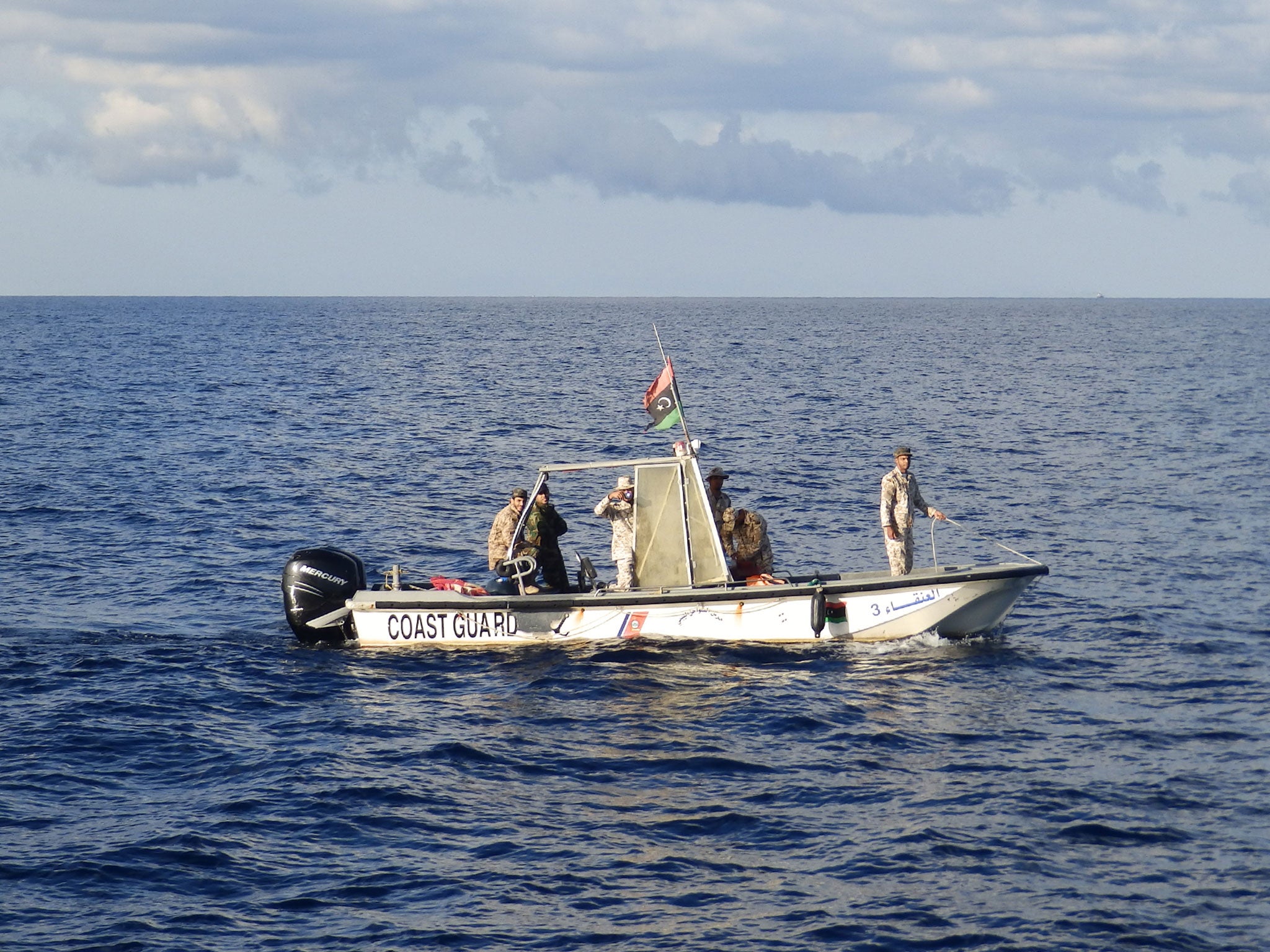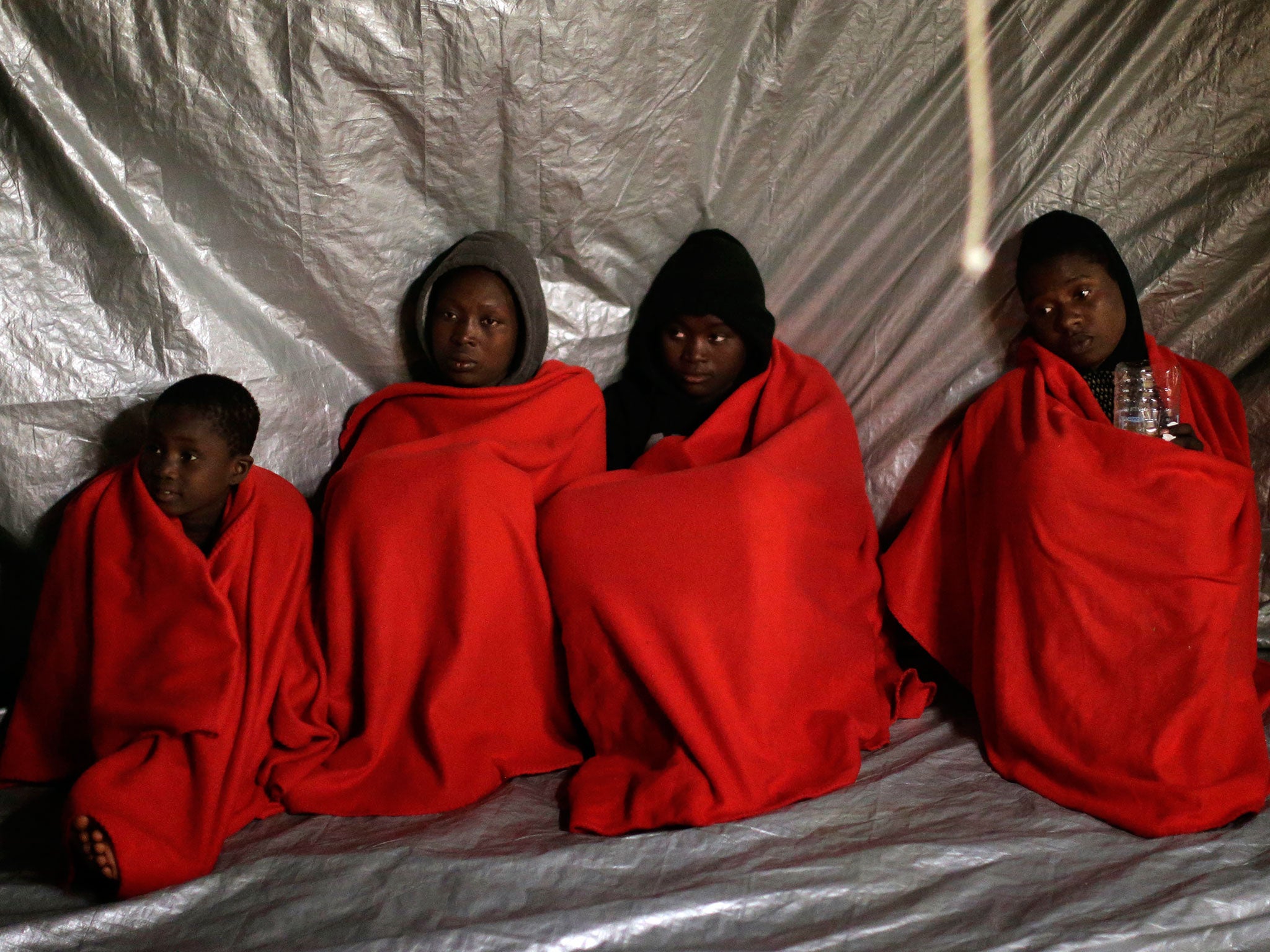EU Malta summit: Leaders warned against stranding thousands of refugees in 'concentration camps' in Libya deal
United Nations warns stranding thousands in Libyan warzone would not be 'humane solution'
The European Union has been warned against stranding thousands of refugees in “concentration camp-like” prisons by making a controversial deal with Libya to stem the flow of migrants over the Mediterranean.
The country is the main launching point for hundreds of thousands of migrants who have crossed to Europe fleeing war, persecution and the dire conditions in Libya itself.
Authorities and militias stand accused of killing, shooting, torturing, detaining and exploiting asylum seekers amid the bloody chaos of the continuing civil war.
The national coastguard, being trained by Britain and other European nations, has also attacked rescue vessels run by humanitarian groups, causing 25 people to drown in one incident.
But the EU is expected to hand Libyan authorities more responsibility for refugee operations, potentially allowing the forced return of boats, following a summit in Malta today.
Theresa May and Angela Merkel are among the leaders to attend talks chaired by European Council president Donald Tusk, which come amid heightened tensions over Brexit and differing reactions to Donald Trump’s policies.
As politicians gathered in Valletta on Friday morning, Médecins Sans Frontières (MSF) rescue teams said an “absolute nightmare” was unfolding in the Mediterranean, with their ships at full capacity as multiple rescues were still underway.
"There are not enough search and rescue vessels," MSF project coordinator Ed Taylor said. "There is no coastguard vessel in the area, there are no navy vessels...we've asked for backup and [Italian authorities] can't send anything."
Unicef said that after the deadliest ever winter for refugees, seeing at least 190 children drown in the past three months, the lives of thousands were at stake.
Justin Forsyth, the agency’s deputy executive director, said: “The decisions taken at Friday’s summit could literally mean the difference between life and death for thousands of children transiting or stranded in Libya. They need urgent action now.”
Unicef called for the UK and other countries to safely resettle refugees and warned against violating a 1951 convention by sending them back to Libya “without a proper plan to protect them”.
The UN refugee agency (UNHCR) and International Organisation for Migration (IOM), said Libya was “not a safe third country”.
“We believe that, given the current context, it is not appropriate to consider Libya a safe third country nor to establish extraterritorial processing of asylum-seekers in North Africa,” a joint statement said, urging European leaders to find “humane solutions”.
MSF, which staffs two rescue boats in the Mediterranean as well as providing medical care in Libya, said the EU needs a “reality check” if it is considering allowing migrants to be returned.
“Libya is not a safe place and blocking people in the country or returning them to Libya makes a mockery of the EU’s so-called fundamental values of human dignity and rule of law,” said Arjan Hehenkamp, MSF’s general director.
He described visits to “dangerously overcrowded” detention centres with no natural light or ventilation, where infections and disease are rife and inmates are starved.
Save the Children, which also runs rescue operations, said boys and girls were being beaten and raped as part of “widespread abuses” at the hands of smugglers and armed factions in Libya.

“Simply pushing desperate children back to a country which many describe as hell is not a solution,” said Ester Asin, the charity’s EU advocacy office director.
“The EU is yet again outsourcing its responsibility to protect the rights of migrants and refugees with no guarantees about what will happen to the many men, women and children after they have been returned to Libya.”
The route from Libya into the Central Mediterranean has become the main passage to Europe after a controversial agreement struck with Turkey last year, which dramatically reduced the number of boats crossing the Aegean Sea by seeing everyone arriving on Greek islands detained under threat of deportation.
A repeat of the EU-Turkey deal has been mooted but is considered impossible in light of the continuing conflict in Libya, where the new Government of National Accord is struggling to stop battles between a plethora of warring militias including Islamists and Isis.
Migrants are a profitable business for gangs who detain them in makeshift prisons, either holding them for ransom or forcing them into labour or prostitution amid widespread lawlessness following the British-backed ousting of Muammar Gaddafi in 2011.
A leaked report by German diplomats described the horrific conditions “like concentration camps”, where survivors described daily executions “to make room for new arrivals”.
The asylum seekers who manage to escape are more likely to die attempting the treacherous journey across the Mediterranean than ever before, with more than 5,000 drowning, suffocating or freezing to death in overloaded smugglers’ boats last year alone.

The number of people dying in the passage between Libya and Italy, the deadliest sea crossing in the world, is now 13 times higher than during the same period last year.
More than 1,300 migrants were rescued on Wednesday alone, with babies and young children among those found on 12 overloaded boats.
They are among more than 5,000 people who have arrived in Europe from Libya so far this year, mainly from Nigeria, Eritrea, Guinea and other African countries.
A damning report by the Unravelling the Mediterranean Migration Crisis (Medmig) found the EU partly responsible for a spike in disasters as smugglers switched from wooden boats to flimsy dinghies in a bit to lower costs and avoid detection.
European naval ships and vessels from the Frontex border agency are already patrolling Libya’s coast to track movement, and new measures could include bolstering Libya’s military and coastguard to carry out return operations.
As well as trying to disrupt smuggling gangs, the EU aims to deport more failed asylum seekers from Italy, using its cash to overcome resistance among African states to taking people back.
Mr Tusk said the summit’s main goal was to “stem the flow of irregular migration from Libya to Europe” in cooperation with Prime Minister Mustafa al-Sarraj’s government.
It is the latest part of the Migration Partnership Framework, which was adopted by the EU last year despite opposition from more than 100 human rights organisations.
Join our commenting forum
Join thought-provoking conversations, follow other Independent readers and see their replies
Comments